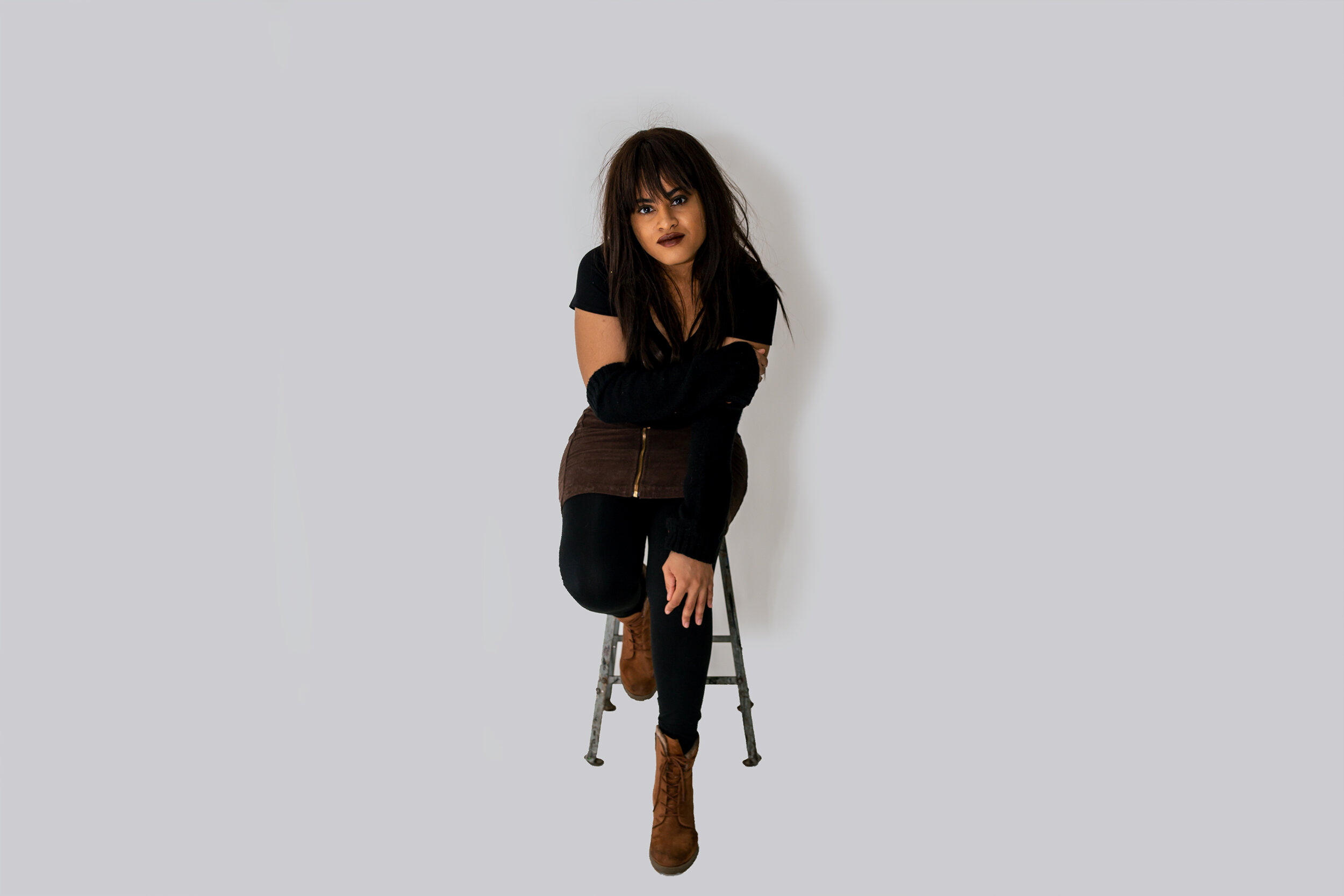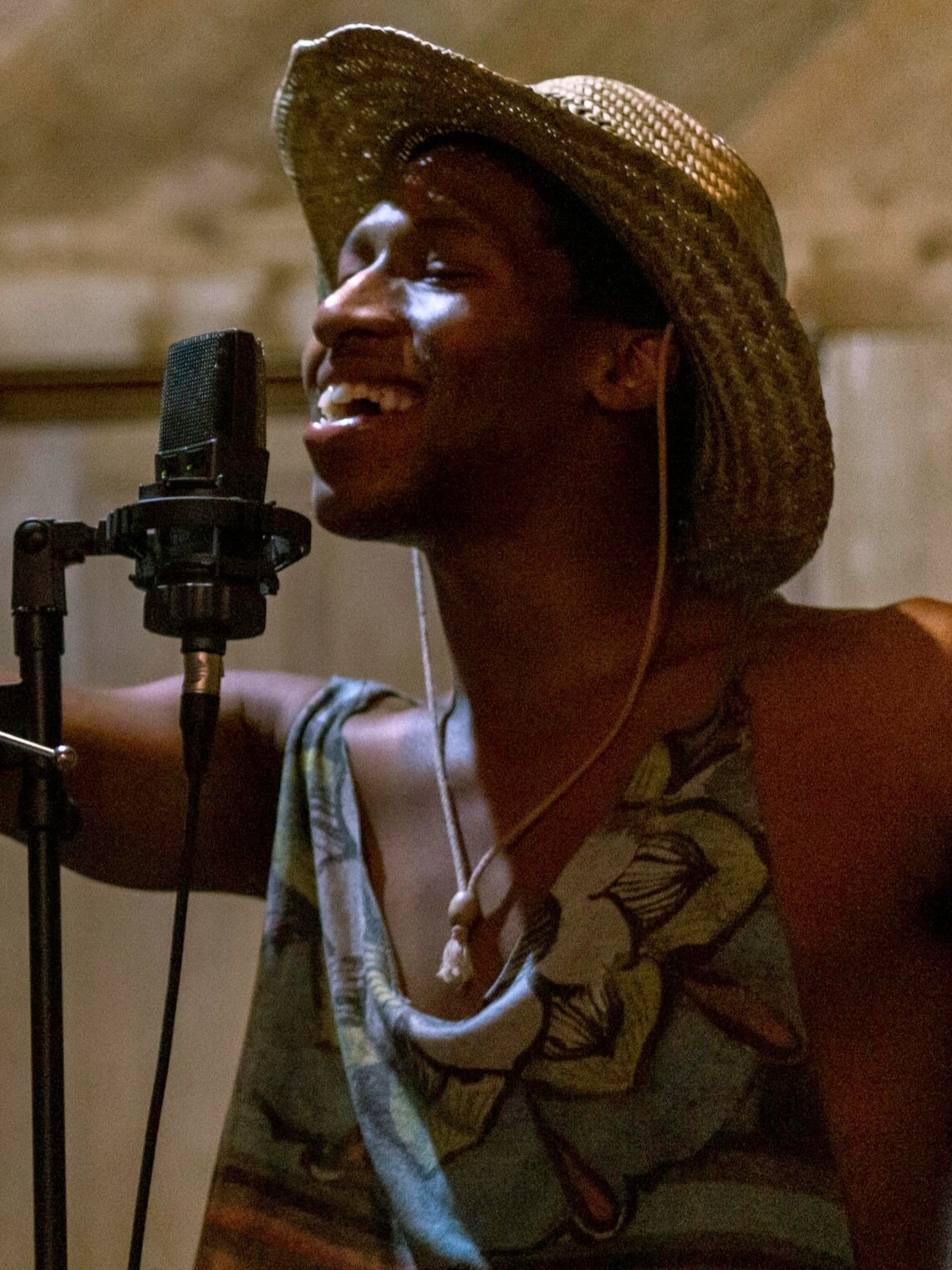Marcellé Uses Debut Album to raise Awareness for Sexual Assault

Stephanie Marcellé, by Victoria Conway
“Releasing my songs one month at a time gave me the ability to build awareness, not only about myself as a new artist, but most importantly about sexual assault.”
Stephanie Marcellé wrote her debut album, HUMAN, in the aftermath of a sexual assault that took place during her freshman year in college. The album began as her senior project in Loyola's Popular and Commercial Music program, but it developed into a means for her to process the sexual assault. She kept working on it after graduation when she continued her studies in Loyola’s graduate Music Therapy program, then in the early spring of 2020 when the pandemic began, her newfound free time gave her the perfect opportunity to finally complete HUMAN.
“Being at home every day during the shutdown allowed me to develop the tone on my album more creatively through mixing different cultural sounds with R&B,” Marcellé said.
While working on the album, Marcellé realized it was processing more experiences than just her own. “One student that was helping me was so passionate about it being a sexual assault awareness album and was getting other students in the school involved because they really believed in me and the project,” she says. That person and others who responded to HUMAN helped Marcellé clarify her priorities. Her true passion now lies in preventing sexual assault, and she wants her music to be the bridge. Her career takes second place to her activism, but if she can make both happen at once, all the better.
Her music and activism come together on her website, StopSexualAssault.org, where on a page titled “Our Story,” Marcellé tells hers. In her first year as a Tulane freshman in a dorm on campus, she woke up to find a stranger sexually assaulting her in her bed. A shared bathroom joined two dorm rooms, and while it could be locked from the inside the bathroom to give the user privacy, the door to it couldn’t be locked from the dorm room. Her assailant was another freshman student who, drunkenly, entered her room through the bathroom. Marcellé wrote. “When the judge found him not guilty, my mother helped me to continue fighting for justice, supporting my decision to sue him and Tulane University.”
She wrote that she transferred to Loyola after being told at Tulane, “We are not responsible for the safety of our students.”
The website also features Marcellé’s music, including “legs” and “hands,” the first releases from HUMAN. She plans to release a song a month, with “curls” due out in March. All the songs will feature body parts as their titles. “Sexual assault affects every area of survivors’ lives,” she says, “so survivors have healing to do in all of those areas. I represent each of those areas with a different body part—‘legs’ represents safety, ‘hands’ represents physical intimacy, and ‘curls’ represents body image. Once a survivor reaches a certain point in their healing, I say that they've healed into a whole person. I believe that they've done that by figuring out who they are beyond sexual assault. That's why I titled the project HUMAN.”
Marcellé released “legs” on January 1 as an introduction to Mardi Gras season and the struggles survivors encounter when it comes to feeling safe. She describes “legs” on her website as “humorously describing rape culture,” and while “humorous” might be a stretch, the track reassures those who fear that an album devoted to sexual assault would be uncomfortable or potentially unpleasant to listen to. Marcellé is pro-safe pleasure with her friends, inviting a friend to “Dance! Dance with me! / Don’t worry about these men lurking! / We came here to party—have a good time! / Baby, move your legs and relax your mind! / If he comes too close we’ll bounce him back! / You are not alone!”
Over a mix of Carnival season rhythms, she swats away the the idea that any woman is ever “asking for it” and makes a clear case for express consent. “She can show her knees and thighs / It’s style not consent,” she sings. “And if she got drunk or high / That still wouldn’t mean yes!”
Stephanie Marcellé, by Victoria Conway
The second track released in February, “hands,” is a percussion-driven love song that coincides with Black History Month and Valentine’s Day. The song details the battle a survivor may face in a post-assault relationship. Her soft tone and smooth vibrato shine through when she wonders “how to let somebody touch / Knowing that it will not hurt.” It’s evident that her lyrics are coming from the rawest part of herself, and every word echoes with purpose.
“I tried to write the lyrics in a way that the song is always positive to some extent” she says. “I didn’t want to ignore emotions and the reality of how terrible sexual assault is, but to show other survivors that there is a light at the end of the tunnel.”
Marcellé will release a third song, “curls,” in early March on her website, and plans to continuing debuting the songs from HUMAN there. At the end of 2021, she will donate 20 percent of the profit from HUMAN to the Rape, Abuse, and Incest National Network (RAINN) to honor the one in five college women who experience sexual assault as a student. She plans to officially register StopSexualAssault.org as a 501(c) and utilize it as a tool to provide training to students and their parents to help them understand how sexual assault works. The website will teach students and parents the steps to take after someone has been sexually assaulted, as well as how they can work at their universities to attain safer policies. Throughout the site and her songs, the voice is one of empowerment for the victims, reminding them that whatever they decide to do is completely up to them, unlike their assault.
The struggle Marcellé underwent was clear in conversation, and her passion for the project came out even more so when discussing the—unfortunately—very common notion of victim-blaming. During her legal battles, she came across many people who accused her of being dramatic and fabricating the assault. Dealing with them slowed her progress on HUMAN, but she also encountered many students who came to her expressing their excitement for the project’s release because they were also survivors. Realizing the project was turning into something bigger than just her own healing process, Marcellé was inspired to continue writing for other survivors who could hear their experiences represented in her songs.
“I formed the lyrics in a way that when people listen to my songs, they don’t just hear my specific experiences. They can apply their own experience and healing to them as well,” she says.







